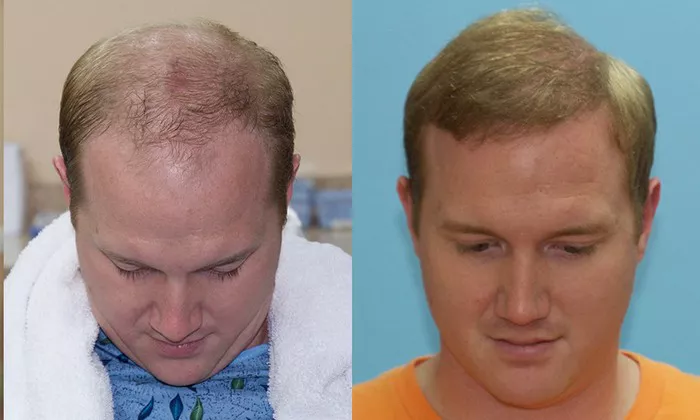Hair transplants have become a popular solution for individuals seeking to restore their hair and regain confidence. However, many people considering this procedure have questions about the longevity and appearance of their transplanted hair. One common concern is whether hair transplants can turn grey over time. In this article, we will explore the relationship between hair transplants and greying, the factors that influence this process, and what patients should know to manage their expectations.
Understanding Hair Transplants
1. What Is a Hair Transplant?
A hair transplant involves relocating hair follicles from a donor site (typically the back of the head) to areas experiencing thinning or balding. There are two main techniques:
FUT (Follicular Unit Transplantation): A strip of scalp is removed, and individual follicles are harvested from that strip.
FUE (Follicular Unit Extraction): Individual hair follicles are extracted directly from the scalp using a specialized tool.
2. The Hair Growth Cycle
To understand how hair might change over time, it’s essential to grasp the hair growth cycle, which consists of three phases:
Anagen Phase: The growth phase where hair follicles actively produce hair. This phase can last several years.
Catagen Phase: The transitional phase where hair growth slows down and the follicle shrinks.
Telogen Phase: The resting phase where hair falls out, making way for new growth.
3. How Hair Transplants Work
During a hair transplant, follicles from the donor area are selected for their resilience against hair loss. These follicles are genetically programmed to continue growing for life, making them ideal for transplantation.
The Science Behind Hair Colour
1. What Causes Hair to Turn Grey?
Hair turns grey due to a reduction in melanin production, the pigment responsible for hair color. Factors that contribute to greying include:
Genetics: Family history plays a significant role in when and how quickly hair turns grey.
Age: Natural aging processes typically lead to decreased melanin production.
Stress: While the link between stress and greying is debated, some studies suggest that high stress may accelerate the process.
Health Conditions: Certain medical conditions and nutritional deficiencies can impact hair pigmentation.
Do Transplanted Hairs Go Grey?
1. Transplanted Hair and Aging
Transplanted hair follicles are taken from the donor area, where they maintain their genetic characteristics. Therefore, the hair from the donor site is subject to the same aging processes as the rest of the hair on your head, including turning grey.
2. Timing of Greying
The timing of when transplanted hair goes grey can vary based on individual factors. While some people may experience greying soon after transplantation, others may retain their color for many years, depending largely on genetic predisposition.
3. Follicle Resilience
Transplanted hair follicles are generally more resilient than the hair in thinning areas. However, they are not immune to the natural aging process. Eventually, even these hairs will undergo changes, including the potential to turn grey.
Factors Influencing Greying of Transplanted Hair
1. Genetics
Genetics is perhaps the most significant factor determining when and how quickly hair turns grey. If your family has a history of early greying, it’s likely that your transplanted hair will follow suit.
2. Age
As individuals age, the likelihood of hair turning grey increases. This natural process will affect both transplanted and non-transplanted hair.
3. Health and Lifestyle
Factors such as diet, stress levels, smoking, and overall health can also influence hair pigmentation. A healthy lifestyle may slow down the greying process.
4. Hair Care Products
The use of certain hair care products can affect the condition of your hair. While this doesn’t directly cause greying, it can impact the overall health and appearance of your hair.
Managing Expectations Post-Transplant
1. Understanding the Timeline
Patients should understand that the results of a hair transplant are not immediate. Transplanted hair typically sheds after a few weeks, followed by a period of regrowth. The timing of greying will vary among individuals and may not occur for several years.
2. Hair Maintenance
Proper care of both transplanted and existing hair is essential for maintaining its health and appearance. Regular trims, a balanced diet, and gentle hair care products can contribute to healthier hair, potentially delaying the onset of greying.
3. Professional Guidance
Consulting with a hair transplant specialist can provide personalized insights into managing expectations regarding hair color changes after a transplant. They can also recommend hair care routines tailored to your specific needs.
Treatment Options for Grey Hair After a Transplant
1. Hair Dyes
For those concerned about the appearance of grey hair, hair dye offers a straightforward solution. Semi-permanent and permanent dyes can effectively cover grey hair while allowing you to maintain a natural look.
2. Natural Remedies
Some individuals opt for natural remedies to delay or manage greying, such as:
Henna: A natural dye that can provide a reddish tint and cover grey.
Amla Oil: Believed to nourish hair and potentially slow the greying process.
3. Hair Care Products
There are specialized shampoos and conditioners formulated to enhance color and prevent fading. Using these products may help maintain the vibrancy of your hair, including transplanted hair.
Conclusion
Hair transplants can provide a lasting solution for hair loss, but they do not prevent the natural aging process, including the greying of hair. Transplanted hair will eventually go grey, influenced by factors such as genetics, age, and lifestyle. Understanding these dynamics can help manage expectations and provide guidance on post-transplant care. By adopting a healthy lifestyle and proper hair maintenance, individuals can enhance the longevity and appearance of both transplanted and existing hair, making informed decisions about managing greying as they age.
Related topics:
- Can You Use Hair Fibers After a Hair Transplant?
- Can You Go Bald After a Hair Transplant? Exploring the Truth
- What to Expect Two Months After a Hair Transplant?


